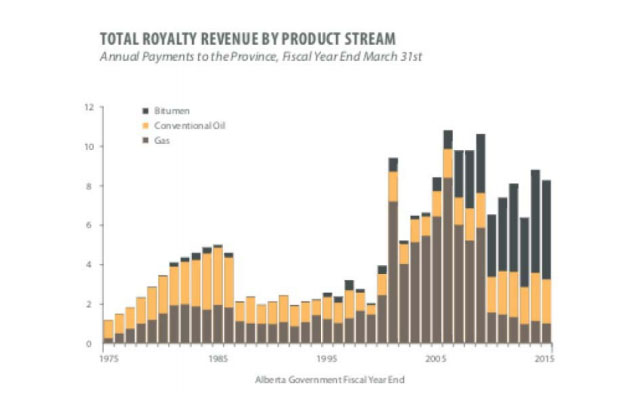Source: Rick Mills for Streetwise Reports 05/23/2018
Rick Mills of Ahead of the Herd opines on the political situation with Kinder Morgan’s pipeline.
The Canadian Constitution couldn’t be clearer about who controls pipelines that cross provincial boundaries—as in Kinder Morgan’s proposal to twin an existing pipeline that runs from Edmonton to Burnaby, BC. According to the 1867 Constitution, section 92(10)(a), the federal Parliament has jurisdiction over railways, canals and “other works and undertakings” (including pipelines) that extend across provincial boundaries. If the federal government approves a pipeline, as Justin Trudeau’s Liberals did with the Kinder Morgan TMX Expansion project in 2016, no provincial government may, within the limits of our Constitution, override the decision. The “declaratory power” of section (c) strengthens federal jurisdiction even more if the project is considered to be in the national interest. The following is from Tom Flanagan, a professor of political science at the University of Calgary, who knows the Constitution inside-out:
This allows Parliament to declare a work, even though “wholly situate within the province,” to be for the general advantage of Canada, or of two or more provinces, and therefore to come under federal jurisdiction. Parliament could invoke the declaratory power over all the local roads, bridges, storage facilities, hydro connections and any other physical installations necessary to construct and maintain a pipeline. – Tom Flanagan
So, all the federal government needs to do is pass a law stating that we WILL build a pipeline to allow Alberta oil to get to tidewater and enjoy international prices rather than the current $27 discount Canadian producers of Western Canadian Select must accept versus the North American West Texas Intermediate benchmark. Instead, we have the Minister of Finance, Bill Morneau, saying Wednesday that they have agreed to write Kinder Morgan a cheque to ensure that the pipeline gets built despite the steadfast opposition of the BC government. In other words, the federal government’s solution to what has become a ridiculous dog and pony show of separate interests all fighting each other instead of working together in what could be a national infrastructure project of benefit to all Canadians, is for the costs of any delays to be picked up by you, the taxpayer. And so far Morneau has given no limit as to what he’d pay. It’s a blank cheque. How did we get to this sad state of affairs, where our government has to pay off a company just to get a key piece of infrastructure built?
A brief history
It all goes back to the decision in 2016 by newly minted PM Justin Trudeau. The golden boy who could do no wrong, despite the Trudeau name being a curse word in Alberta for Trudeau Senior’s hated National Energy Program, decided to reject Northern Gateway and approve Kinder Morgan’s project, aka the Trans Mountain pipeline. Why did Trudeau do that? In a bit of twisted logic, Trudeau and his Environment Minister, Catherine McKenna, reasoned that in order for Canada to meet its international carbon emissions reduction obligations, it would impose a national carbon tax. Knowing that a carbon tax wouldn’t go over big in Alberta, Trudeau rejected Northern Gateway, which faced impossibly high hurdles in First Nations and environmental opposition, and instead green-lighted Kinder Morgan.
The proposal would twin the Texas-based company’s existing pipeline, allowing a tripling of crude oil from 300,000 barrels to 890,000 barrels a day, while also triggering a seven-fold increase in the number of oil tankers coming and going from Vancouver Harbour.
Since it was not a new pipeline but an extension of an existing one, Trudeau likely reasoned it would face less opposition than Northern Gateway (people forget that the National Energy Boardan independent regulatory agency recommended that the federal government approve it, with 157 conditions). He was obviously wrong about that, as the ongoing protests on Burnaby Mountain, just outside of Vancouver, demonstrate. Thus, the bargain struck in 2016 was a carbon tax in return for Alberta being granted a route for its bitumen from the oilsands, and a way out of the current dilemma of chock-full pipelines forcing producers to accept a discount on Canadian crude oil. The oil flowing through Kinder Morgan’s new pipes would be exported, meaning it could fetch the higher Brent crude price. Win win, right? Wrong.
Remember Christy Clark? The former BC premier was instrumental in cutting a deal with Alberta Premier Rachel Notley that would satisfy BC’s concerns that it was getting a fair shake over this Kinder Morgan pipeline proposal. Clark and Notley’s predecessor, Alison Redford, got off on the wrong foot right away (their relationship was described as “frosty”) when Clark demanded that she wouldn’t agree to the pipeline unless five conditions were met:
- world-leading marine and land oil spill response
- protection and recovery measures for B.C.’s coast and land areas
- environmental reviews
- First Nations consultations
- participation and economic agreements that reflect the level and nature of the risk the province bears with a heavy oil project.
On January 11, 2017, after five years of negotiations, Clark announced that the five conditions had been met and therefore gave the pipeline environmental approval, with 37 conditions. The deal included a revenue-sharing agreement worth up to $1 billion; the money from the fund was supposed to go into local environmental projects. Kinder Morgan promised that between $25 million and $50 million would flow to BC provincial coffers every year for the next 20 years. Four months later, an agreement was cemented with Kinder Morgan Canada, along with separate agreements with 33 BC First Nations and 19 cities in BC and Alberta. The 30-page document came with a poison pill, though. If the BC government resorted to undue regulatory hurdles, the company could declare it null and void. “The province will continue to endeavor to have a timely and efficient regulatory and decision-making process for all provincial regulatory matters related to …read more
From:: The Energy Report

